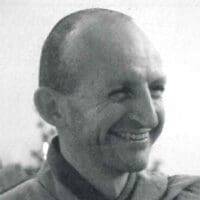Overview
How Buddhist meditative practices can inform our understanding of pain and suffering, the potential for healing, the relief of suffering, and the underlying nature of the human mind – and body.
Distinctions between pain and suffering are critical and relevant within the context of Buddhist thought and practice. This talk will map out a Buddhist perspective on suffering, its ultimate causes, the possibility of liberation from suffering, and a systematic path for its realization. It will touch on what Buddhists refer to as universal qualities of the human mind that are directly accessible through the cultivation of awareness through meditation.
- Dialogue 1316 sessions
- November 8, 2005Dar Constitution Hall, Washington, DC
- Transcript - Connection, Community, and Compassion with Susan Bauer-Wu, Dekila Chungyalpa, Elissa Epel, and Brother Phap Dung |pdf|


